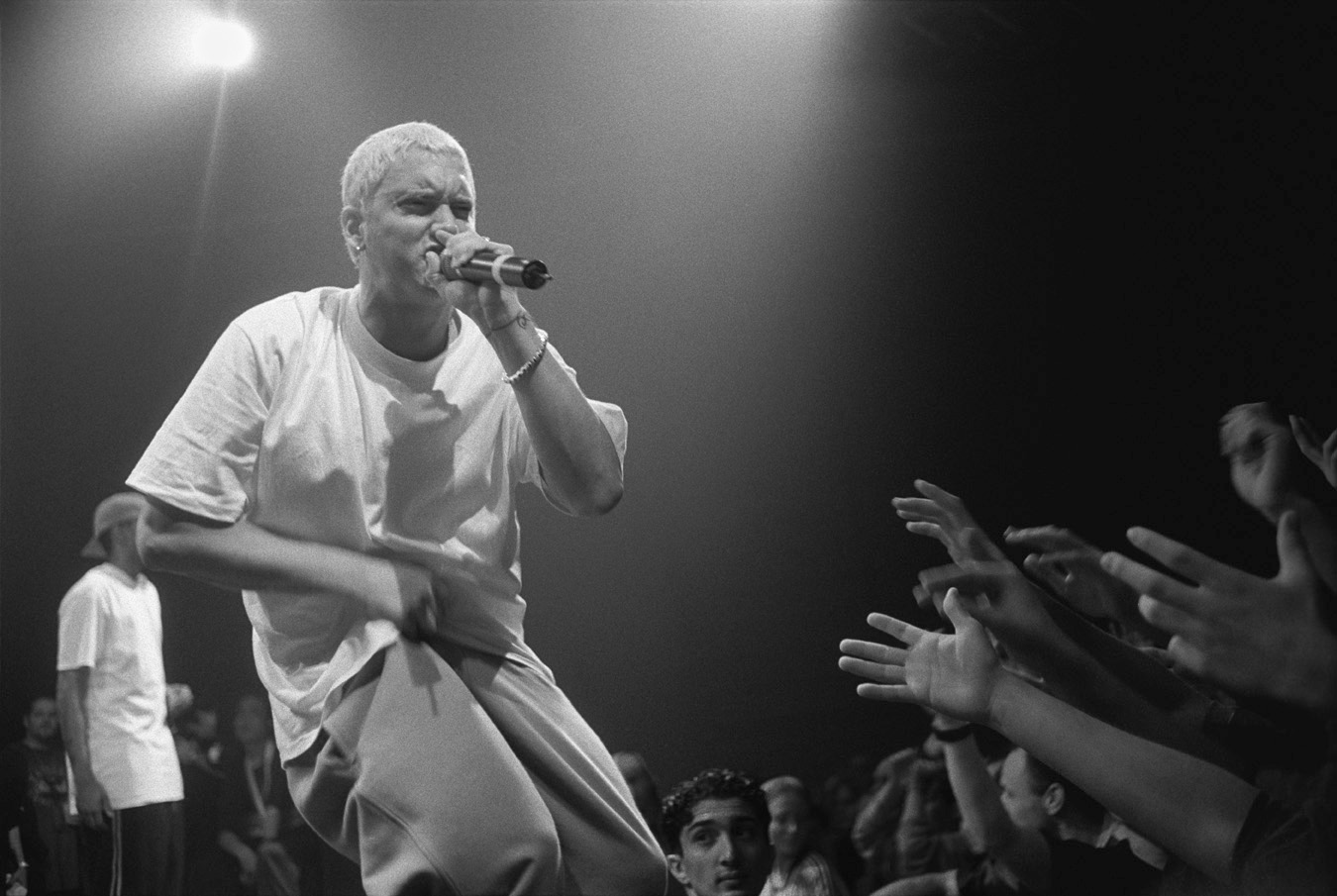|
Payola
Payola, in the music industry, is the name given to the illegal practice of paying a commercial radio station to play a song without the station disclosing the payment. Under U.S. law, a radio station must disclose songs they were paid to play on the air as sponsored airtime. The number of times the songs are played can influence the perceived popularity of a song, and payola may be used to influence these meters. The Federal Communications Commission (FCC) treats payola as a violation of the Sponsorship Identification Rules, which requires any broadcast of paid material to include a disclosure. The term ''payola'', coined by entertainment magazine '' Variety'' in 1938, is a combination of "pay" and "-ola", the latter of which is a suffix of product names common in the early 20th century, such as Pianola, Victrola, Amberola, Mazola, Crayola, Rock-Ola, Shinola, or brands such as the radio equipment manufacturer Motorola. History Prior to the 1930s, there was little p ... [...More Info...] [...Related Items...] OR: [Wikipedia] [Google] [Baidu] [Amazon] |
House Subcommittee On Legislative Oversight
The House Subcommittee on Legislative Oversight was a special subcommittee of the House Committee on Interstate and Foreign Commerce, responsible for the oversight of federal regulatory agencies such as the Federal Communications Commission. During the 86th Congress in 1959, the subcommittee was chaired by Representative Oren Harris, a Democrat from Arkansas. The subcommittee is famous for its hearings regarding payola and the quiz show scandals of the 1950s. The investigations conducted led to regulation in the broadcast industry. Proceedings The special subcommittee investigated the quiz show scandals and the issue of payola. The aforementioned scandal involved rigged televised quiz shows which were portrayed as legitimate throughout the 1950s, while payola is the act of paying radio stations or disc jockeys to get them to play or promote certain songs. The investigations began in 1959 and continued into 1960. The subcommittee was led by Oren Harris, who first ordered an i ... [...More Info...] [...Related Items...] OR: [Wikipedia] [Google] [Baidu] [Amazon] |
Alan Freed
Albert James "Alan" Freed (December 15, 1921 – January 20, 1965) was an American disc jockey. He also produced and promoted large traveling concerts with various acts, helping to spread the importance of rock and roll music throughout North America, including popularizing the term "rock and roll". In 1986, Freed was inducted into the Rock and Roll Hall of Fame. His "role in breaking down racial barriers in U.S. pop culture in the 1950s, by leading white and black kids to listen to the same music, put the radio personality 'at the vanguard' and made him 'a really important figure'", according to the executive director. Early years Freed was born to a Welsh Americans, Welsh-American mother, Maude Palmer, and a History of the Jews in Russia, Russian Jewish immigrant father, Charles S. Freed, in Windber, Pennsylvania. The 1930 Federal Census has the Freeds living at 550 East Seventh Street in Salem, Ohio, with Charles listing his place of birth as Alsace-Lorraine and his lang ... [...More Info...] [...Related Items...] OR: [Wikipedia] [Google] [Baidu] [Amazon] |
Dick Clark
Richard Wagstaff Clark (November 30, 1929April 18, 2012) was an American television and radio personality and television producer who hosted ''American Bandstand'' from 1956 to 1989. He also hosted five incarnations of the Pyramid (game show), ''Pyramid'' game show from 1973 to 1988 and ''Dick Clark's New Year's Rockin' Eve'', which broadcast New Year's Eve celebrations in New York City's Times Square. As host of ''American Bandstand'', Clark introduced rock and roll to many Americans. The show gave many new music artists their first exposure to national audiences, including The Supremes, Ike & Tina Turner, The Miracles, Smokey Robinson and the Miracles, Stevie Wonder, Simon & Garfunkel, Iggy Pop, Prince (musician), Prince, Talking Heads and Madonna. Episodes he hosted were among the first in which black people and white people performed on the same stage, and they were among the first in which the live studio audience sat down together without racial segregation. Singer Paul A ... [...More Info...] [...Related Items...] OR: [Wikipedia] [Google] [Baidu] [Amazon] |
Frankie Crocker
Frankie "Hollywood" Crocker (December 18, 1937 – October 21, 2000) was an American disc jockey, VH-1 VJ, TV host and actor. Crocker helped grow WBLS, the urban adult contemporary and black music radio station, into the #1 station in New York City in the late 1970s. Radio Career Radio in Buffalo and New York City According to popeducation.org, Crocker began his career in Buffalo at soul music powerhouse WUFO 1080 AM (also the home to future greats Gerry Bledsoe, Eddie O'Jay, Herb Hamlett, Gary Byrd and Chucky T). Crocker later moved to Manhattan, where he first worked for soul station 1600 WWRL and later Top 40 outlet 570 WMCA in 1969. He then worked for 107.5 WBLS as program director and afternoon host. He took the station to the top of the ratings during the late 1970s and pioneered the radio format now known as urban contemporary. He sometimes called himself the ''Chief Rocker'', and he was as well known for his boastful on-air patter as for his off-air flamboya ... [...More Info...] [...Related Items...] OR: [Wikipedia] [Google] [Baidu] [Amazon] |
Independent Promoter
Radio promotion is the division of a record company which is charged with placing songs on the radio. They maintain relationships with program directors at radio stations and attempt to persuade them to play singles to promote the sale of recordings, such as CDs, sold by the record company. Those involved are known as record pluggers. Retrieved 18 February 2020 They may also pay a fee to a third party, known as an independent promoter, who works in conjunction with the Label Promoters to further advance the single. See also * |
Rock And Roll
Rock and roll (often written as rock & roll, rock-n-roll, and rock 'n' roll) is a Genre (music), genre of popular music that evolved in the United States during the late 1940s and early 1950s. It Origins of rock and roll, originated from African American music such as jazz, rhythm and blues, boogie-woogie, electric blues, gospel music, gospel, and jump blues, as well as from country music. While rock and roll's formative elements can be heard in blues records from the 1920s and in country records of the 1930s,Peterson, Richard A. Creating Country Music: Fabricating Authenticity' (1999), p. 9, . the genre did not acquire its name until 1954. According to the journalist Greg Kot, "rock and roll" refers to a style of popular music originating in the United States in the 1950s. By the mid-1960s, rock and roll had developed into "the more encompassing international style known as rock music, though the latter also continued to be known in many circles as rock and roll".Kot, Greg"Rock ... [...More Info...] [...Related Items...] OR: [Wikipedia] [Google] [Baidu] [Amazon] |
Music Industry
The music industry are individuals and organizations that earn money by Songwriter, writing songs and musical compositions, creating and selling Sound recording and reproduction, recorded music and sheet music, presenting live music, concerts, as well as the organizations that aid, train, represent and supply music creators. Among the many individuals and organizations that operate in the industry are: the songwriters and composers who write songs and musical compositions; the singers, musicians, Conducting, conductors, and bandleaders who perform the music; the record labels, music publishers, Recording studio, recording studios, Record producer, music producers, audio engineers, Record shop, retail and digital music stores, and Performance rights organisation, performance rights organizations who create and sell recorded music and sheet music; and the talent agent, booking agents, Promoter (entertainment), promoters, music venues, road crew, and audio engineers who help organiz ... [...More Info...] [...Related Items...] OR: [Wikipedia] [Google] [Baidu] [Amazon] |
Request (broadcasting)
A request is a frequently offered feature by some form of broadcasting entity, initially started in radio. It is an effort by the broadcaster to become interactive with their audience, allowing a means for members of the audience to ask for something specific to happen; usually the playing of a specific song. The most common form of this is the telephone request line, where listeners are encouraged to call a specific telephone number to a radio station to give their request. Disk jockeys then would use various forms of identifying that the song they were about to play had been requested, either by playing a jingle to that effect, mentioning the requester by name, playing back a recording of the request phone call or even taking the request live on the air. Many disk jockeys have built their entire act and reputation around their method of dealing with requests. Similarly radio stations have built their format around taking requests. Some stations have even billed themselves a ... [...More Info...] [...Related Items...] OR: [Wikipedia] [Google] [Baidu] [Amazon] |
Playlist
A playlist is a list of video or audio files that can be played back on a media player, either sequentially or in a shuffled order. In its most general form, an audio playlist is simply a list of songs that can be played once or in a loop. The term has several specialized meanings in the realms of television broadcasting, radio broadcasting and personal computers. A video playlist can also be a list of recorded titles on a digital video disk (DVD). On the internet, a playlist can be a list of chapters in a movie serial; for example, Flash Gordon in the Planet Mongo is available on YouTube as a playlist of thirteen consecutive video chapters. Radio The term originally came about in the early days of Top 40 radio formats in the 1950s when stations would devise (and, eventually, publish) a limited list of songs to be played. The term would go on to refer to the entire catalog of songs that a given radio station (of any format) would draw from. Additionally, the term was ... [...More Info...] [...Related Items...] OR: [Wikipedia] [Google] [Baidu] [Amazon] |
Stan Twitter
Stan Twitter is a community of Twitter users who post opinions on celebrities, music, TV shows, movies, video games, social media, and other topics. It is known for using particular terminology and for incidents of harassment. Discussions in Stan Twitter spaces often revolve around public figures primarily those in the entertainment industry. Stan Twitter can also be found to support political views. Background and description The origin of the term ''Fan (person)#"Stan" fans, stan'' is often credited to the 2000 song "Stan (Eminem song), Stan", about an obsessed fan, by American rapper Eminem featuring British singer Dido (singer), Dido. The word itself was added to the ''Oxford English Dictionary'' in 2017 with the definition "an overzealous or obsessive fan of a particular celebrity”. The term was originally a noun, but over time evolved and began to be used as a verb as well. Stan Twitter has been noted by ''The Atlantic'' as one of the "tribes" of Twitter. ''Polygon (webs ... [...More Info...] [...Related Items...] OR: [Wikipedia] [Google] [Baidu] [Amazon] |
Spotify
Spotify (; ) is a List of companies of Sweden, Swedish Music streaming service, audio streaming and media service provider founded on 23 April 2006 by Daniel Ek and Martin Lorentzon. , it is one of the largest providers of music streaming services, with over 678 million monthly active users comprising 268 million paying subscribers. Spotify is listed (through a Luxembourg City–domiciled holding company, Spotify Technology S.A.) on the New York Stock Exchange in the form of American depositary receipts. Spotify offers Digital rights management, digital copyright restricted recorded audio content, including more than 100 million songs and 7 million podcast titles, from record labels and media companies. Operating as a freemium service, the basic features are free with advertisements and limited control, while additional features, such as offline listening and commercial-free listening, are offered via paid Subscription business model, subscriptions. Users can search for music based ... [...More Info...] [...Related Items...] OR: [Wikipedia] [Google] [Baidu] [Amazon] |




